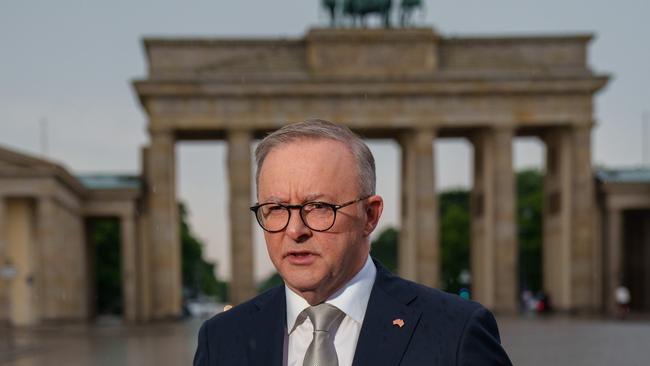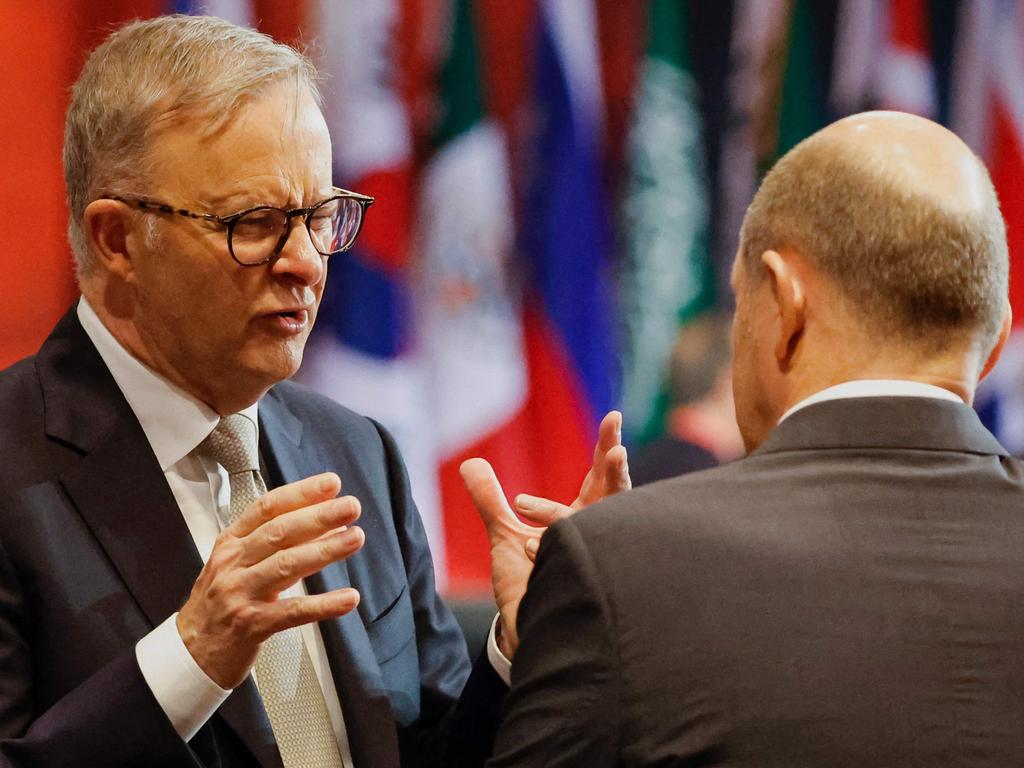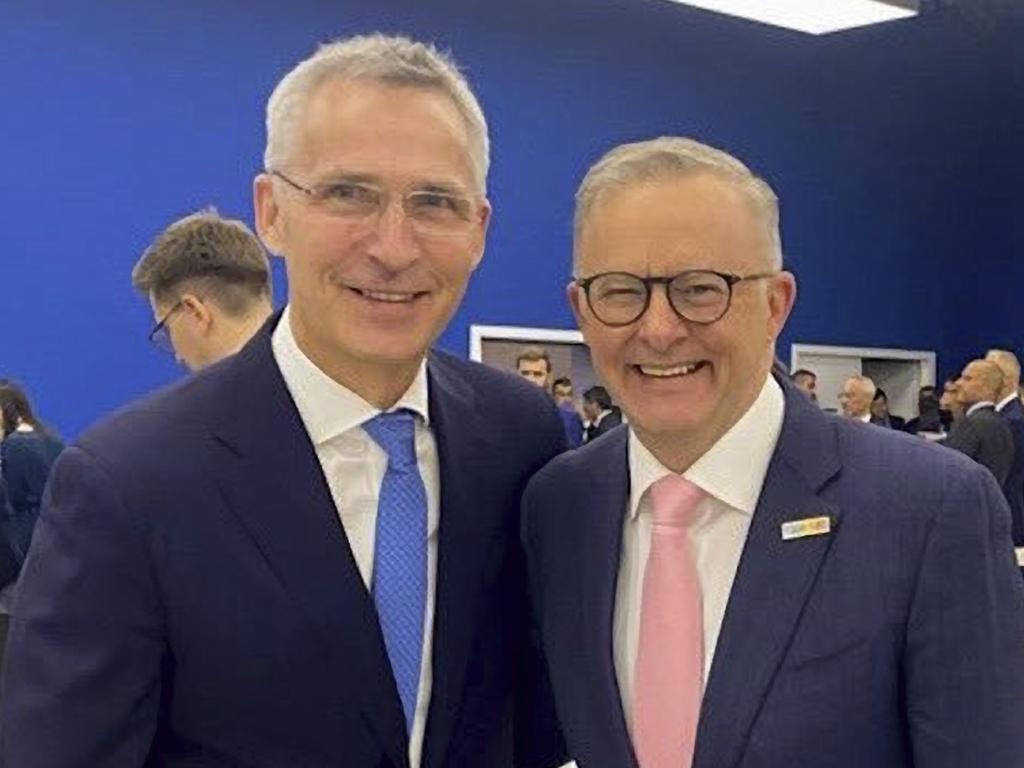German troops join US in Australian war games
Anthony Albanese has confirmed Germany will participate in extensive military exercises in Australia alongside 12 other countries to boost defence in the Indo-Pacific region.

Prime Minister Anthony Albanese believes Germany could have a greater presence in the Indo-Pacific as Germany sends hundreds of German troops to Australia for military exercises later this month.
The German troops will arrive in Australia this week and join with the United States and 11 other nations in extensive military exercises as a part of a “productive relationship that we are developing with our German friends” to boost defence in the Indo-Pacific.
Mr Albanese spent Monday meeting with German Chancellor Olaf Scholz to strengthen the defence ties in Australia’s region as 240 German paratroopers and marines were already en route to Australia. Mr Albanese foreshadowed further announcements about these military connections after his scheduled two hour meeting on Monday evening.
The German military will take part in the comprehensive exercise, called Exercise Talisman Sabre, in Jervis Bay, NSW, Darwin and across Queensland alongside troops from Fiji, France, Indonesia, Japan, Republic of Korea, New Zealand Papua New Guinea, Tonga, the United Kingdom and Canada. As well, the Philippines, Singapore and Thailand will be observers.
Talisman Sabre is to test planning and conducting combined and joint military operations to improve combat readiness and interoperability between Australian and United States’ forces and other partner nations. The inclusion of Germany in the exercise is a reflection of the closer ties Australia has forged with the European nation in recent years, and not only a $1bn deal to export 100 Rheinmetall Defence Australia Boxer Heavy Weapon Carriers to Germany.
Last year the Germans participated in the Australian military exercises Pitch Black and Exercise Kakadu in the Northern Territory, but the involvement of 170 German paratroopers and 40 German marines this time is a big step up from previous engagements It signifies Germany’s interest and concern about China’s moves in the Indo-Pacific region.
Mr Scholz has also given his support to Australia in regards to the European Union free trade deal, which currently faces major roadblocks in regards to French and Irish agricultural issues. Australia and Germany also agreed to build up supply chains for critical minerals and raw materials, by conducting a joint study to identify options for cooperation.
When asked why Germany and other NATO members were considering opening a NATO presence in the region in Japan, Mr Scholz says it is “now a very common practice’’ for NATO members to deploy military assets to the Indo-Pacific.
Australia, as well as New Zealand, South Korea and Japan have been invited to the two day NATO Summit in Vilnius as “Indo Pacific partners”. NATO said this week the Indo-Pacific is important for the Alliance because developments in that region can directly affect Euro-Atlantic security.
Mr Scholz said while NATO was a trans-Atlantic alliance, and geographically located away from the Indo Pacific, it was important to continue military cooperation with countries in the region.
He said: “We share insights, we share positions, and this is why I think it is important that we need to continue the cooperation that we’ve had. For Germany and other NATO partners it’s become a very common practice to deploy their own ships, vessels, aircraft to the Indo-Pacific for exercises to develop common understanding and so forth, and we will continue to do that.”
Mr Albanese said in Berlin ahead of meeting the German chancellor and then attending the two day NATO summit in Vilnius: “I’m looking forward to having the opportunity to outline Australia’s position on international relations and defence issues, but also on showing solidarity that the Australian government has with NATO.”
He said Australia’s trade discussions with the German leader “are a part of the productive relationship that we are developing with our German friends”.
Asked about former prime minister Paul Keating’s attack on NATO and the leadership under secretary-general Jens Stoltenberg, Mr Albanese said: “Jens Stoltenberg is a friend of Australia. I’ve met him on a number of occasions. And we need to remember the role that NATO is playing. There is a land war in Europe. This is a war about the international rule of law, about whether a large nation can seek to impose its will on a smaller nation. This is about national sovereignty. This is about the people of Ukraine, struggling to defend their democracy and their sovereignty. And Australia stands with the people and government of Ukraine. But we also support the extraordinary effort that NATO is showing, because this is a struggle. That is has implications for the whole world. I’m interested in looking forward to my constructive engagement with NATO.”







To join the conversation, please log in. Don't have an account? Register
Join the conversation, you are commenting as Logout